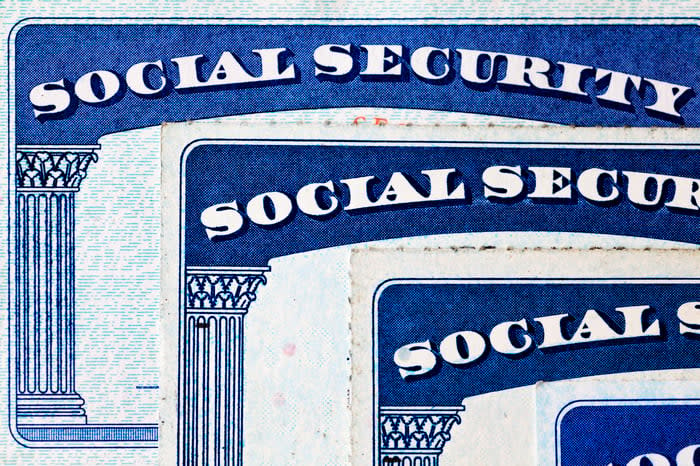Will Joe Biden's Plan to Save Social Security by Taxing the Rich Really Work?
If you were to do a deep dive into Social Security's finances, you'd probably come away worried. Social Security is facing a serious fiscal shortfall in the coming years as older workers retire in droves, stripping the program of the payroll tax revenue that serves as its primary source of funding.
Now, Social Security can thankfully tap its trust funds for a period of time to keep up with scheduled benefits even as payroll tax revenue shrinks. But once those trust funds are depleted, Social Security may have no choice but to cut benefits. That would no doubt leave millions of current retirees in a serious lurch, not to mention upend the plans of current workers who are banking on those benefits to help fund their retirement.

Image source: Getty Images.
President Biden has long pledged his commitment to strengthening Social Security. And he certainly does not want to see benefit cuts come down the pike.
As such, Biden is looking to change the way wages are taxed for Social Security purposes. And his changes are designed to impact the wealthy, leaving middle- and low-income earners unaffected. But while his plan may be a reasonable one in theory, it introduces a whole other problem.
Biden's solution to prevent Social Security cuts
As mentioned, Social Security is primarily funded by payroll taxes. But workers today don't automatically pay taxes on all their income. Rather, there's a wage cap that's established each year, and earnings beyond that point are exempt from Social Security taxes.
This year, the wage cape is $168,600. It commonly increases from one year to the next.
What Biden wants to do is reintroduce Social Security taxes for wages over $400,000. Someone making $500,000 a year, for example, would be taxed on their first $168,600 of earnings (or whatever the wage cap is), and then pay no further tax up to the $400,000 mark. From there, their final $100,000 of wages would be subject to Social Security taxes.
The idea of course is to pump more revenue into Social Security -- something the program desperately needs. But this solution overlooks one key element of how Social Security works.
Will higher earners get larger benefits -- and will that negate all the upside for Social Security?
Although higher earners don't necessarily pay Social Security taxes on all of their earnings, they also don't get credit for all of their earnings in the context of calculating their monthly Social Security benefits. There's a maximum benefit the program will pay, and wages beyond the annual cap aren't considered either way.
But if President Biden's tax proposal goes through, it will raise an interesting question: Will higher earners who are paying more into Social Security be eligible for a higher maximum monthly benefit? And if so, will Social Security's obligation to make those higher payments negate the financial benefit of Biden's proposal?
Remember, the goal of taxing the rich is to have Social Security net added revenue. If the program simply has to pay out the extra revenue it collects, that may not be enough to prevent benefit cuts.
Of course, Biden and other lawmakers could simply decide not to raise the program's maximum monthly benefit and tell higher earners that in this case, they won't be getting their fair share of what they paid in, proportionally speaking. But Biden has long been a proponent of the wealthy paying their fair share in taxes. To then deny them their fair share of Social Security income seems out of character.
All told, it's too soon to know whether Biden's proposal will become reality. But it'll be interesting to see how lawmakers address the issue of making higher earners whole if they're going to be forced to part with more of their income to fund Social Security.
The $22,924 Social Security bonus most retirees completely overlook
If you're like most Americans, you're a few years (or more) behind on your retirement savings. But a handful of little-known "Social Security secrets" could help ensure a boost in your retirement income. For example: one easy trick could pay you as much as $22,924 more... each year! Once you learn how to maximize your Social Security benefits, we think you could retire confidently with the peace of mind we're all after. Simply click here to discover how to learn more about these strategies.
View the "Social Security secrets" ›
The Motley Fool has a disclosure policy.
